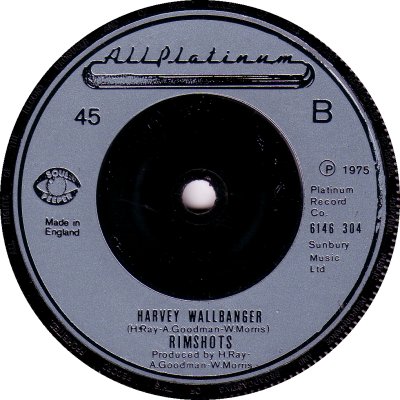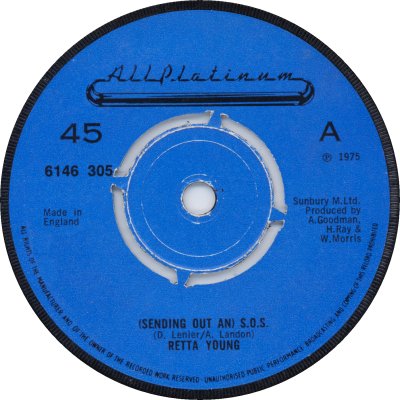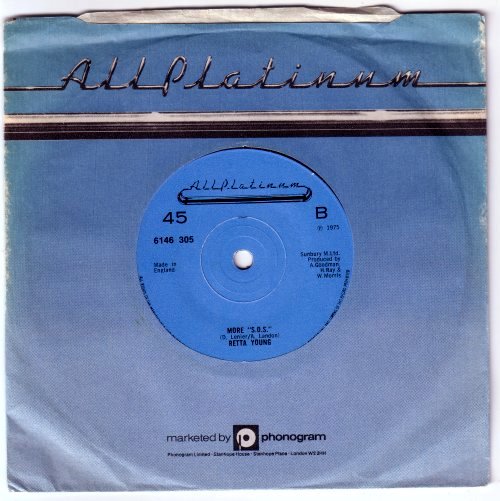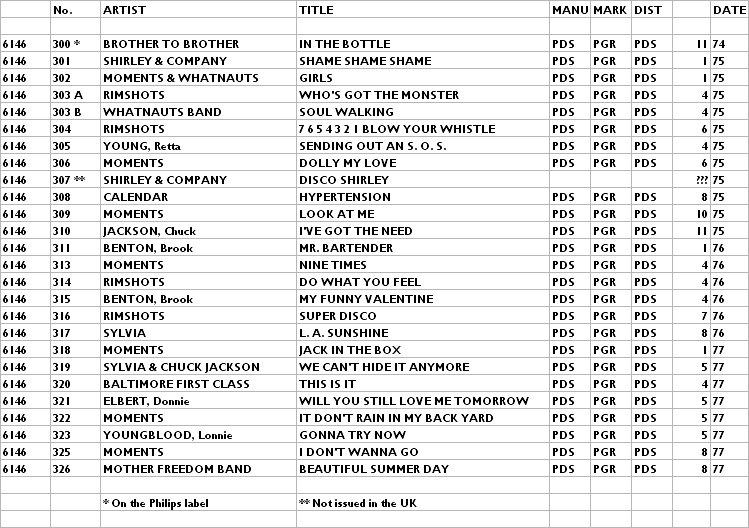


American, out of Engelwood, New Jersey. All Platinum was founded by Joe and Sylvia Robinson in 1968. It enjoyed considerable success in the USA, and also, during the Disco era, in Britain. It didn't appear over here as a label until 1975. Earlier, some of its product had been licensed to other companies and had appeared on their labels: Decca had hits with Donnie Elbert's 'Where Did Our Love Go' (HLU-10352; 12/71) and Sylvia's 'Pillow Talk' (HLU-10415; 4/73), issued on its London label. 'Music Week' of the 7th of December 1974 reported that All Platinum had signed a worldwide (outside the USA and Canada) licensing deal with Phonogram, and singles on the label began to appear here in January of the following year, with catalogue numbers in a 6146-300 series. 6146-300, 'In The Bottle' by Brother To Brother, had come out in November 1974, on the Philips label with a credit to All Platinum at the bottom, prior to the signing of the worldwide deal, which is slightly odd - perhaps the deal was tweaked late on to include separate label identity, or the 6146s were originally intended as a mixed series for products licensed from various labels. The first single on the actual All Platinum label in Britain, Shirley & Co.'s 'Shame Shame Shame' (6146-301; 1/75), entered the charts in early 1975, and the company followed that up with successes by the Rimshots, Retta Young, and particularly the Moments. According to 'MW' of the 27th of November 1976, All Platinum's takeover of Chess (q.v.) had led to a cash-flow crisis and a big restructuring of the company's administration, which had caused a lull in the company's releases since August; the label was to be relaunched in the new year with 'Jack In The Box' by The Moments. The same article said that Phonogram had discretion over what was released in Britain; it wasn't the case that whatever came out in the USA was automatically issued here. Manufacture and distribution were by Phonodisc. Singles were usually injection-moulded (1) but the occasional paper label appeared as a result of contract pressings; the example shown is a CBS product (2). The end of the Disco boom spelled the end of All Platinum, but the Robinsons went on to greater things when they started the Sugar Hill (q.v.) label in 1979 and helped start the Hip Hop revolution.



Copyright 2008 Robert Lyons.

